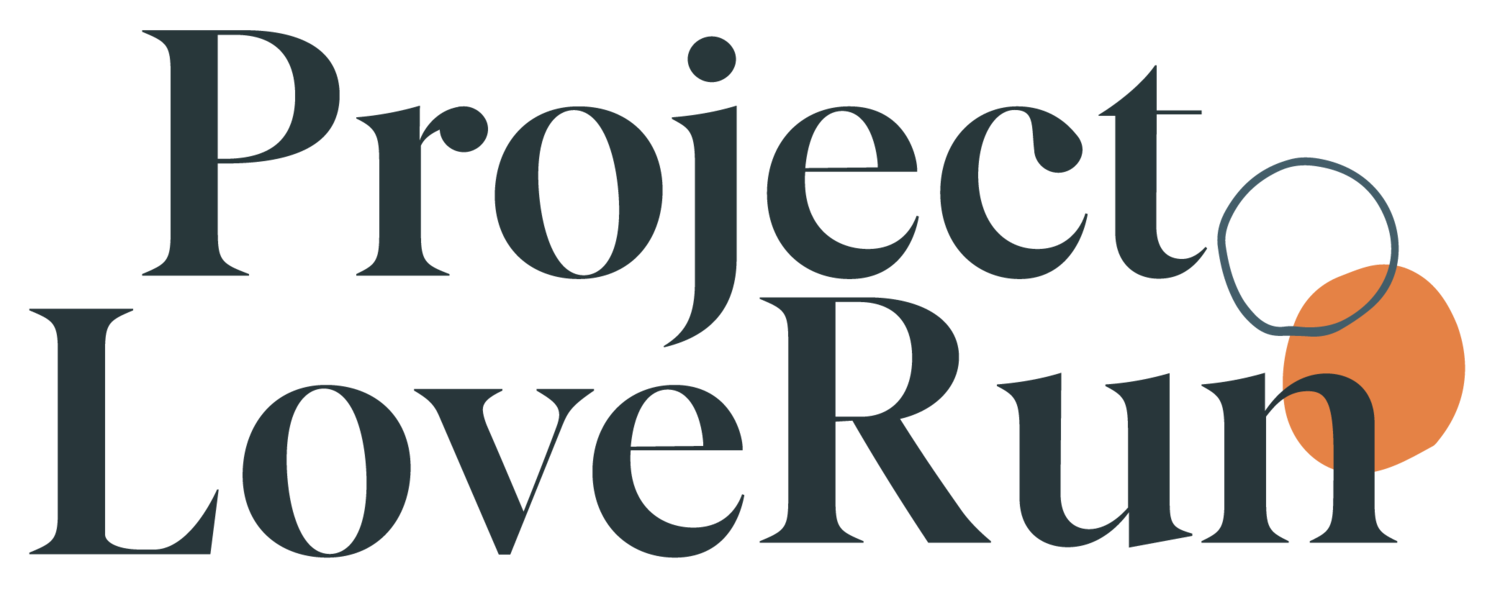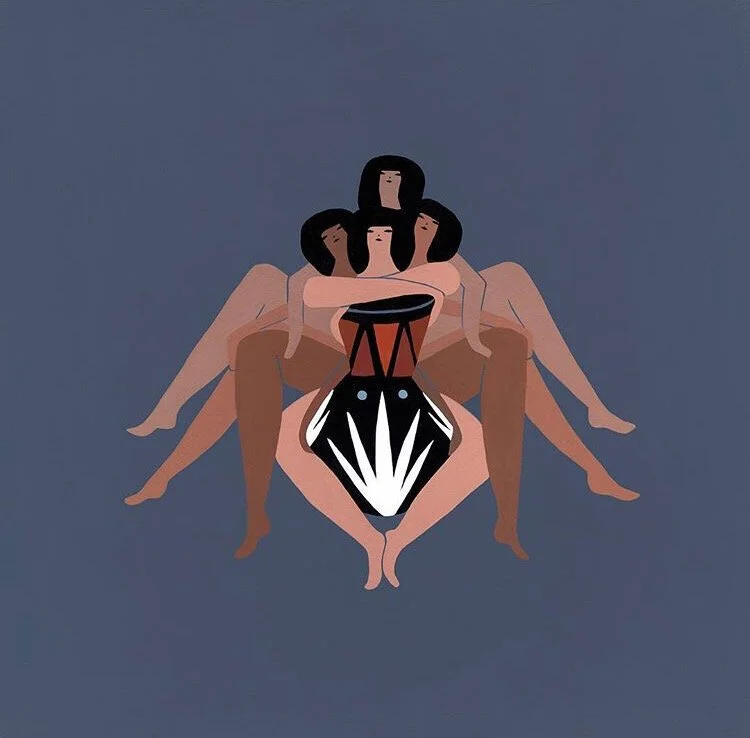What My Period Taught Me
Blog Entry Post by Filsan Abdiaman
Art by Laura Berger
What my period taught me . . .
In 2017 I lost my period. It didn’t bother me at first because I didn’t have to worry about the many “inconveniences” of having a period (like having to buy tampons or having any kind of PMS symptoms). I could do all the things I wanted unhindered. I figured, I would get it in a month or two, after all, I had an irregular period from a young age. So I paid it no attention and didn’t talk about it, instead I went about living my best life.
That same year I ran a lot and worked out a lot, but one thing I didn't do enough of was eat. I was eating too little to sustain my physiology, my running and my active lifestyle. And what naturally happened is I developed a binge eating disorder. I ate to survive and to manage the calorie deficit but in an out of control manner and my solution was bingeing and then restriction. When I started to fear the weight gain that would come with binge eating my disordered eating turned into a binge-purge cycle, that soon became bulimia. Everything terrified me, talking about it, people noticing... Binge eating became this scary thing. And because it is demonized in society, I felt like I was losing control and losing my mind. When in reality my body was just hungry and my period disappearing was it’s way of showing me that I needed to change something fast. A few months without my period turned into half a year without it and I started to get concerned. All the while, it never occurred to me that the binge eating and my lost period was a result of my lifestyle and it was my body’s way of screaming out for help.
Eventually I scheduled an appointment with my family physician who told me that my lost period was a result of my active lifestyle, but she did not tell me anything about how a lost period (also known medically as amenorrhoea), would result in extreme mood swings and/or disorders. With my period gone, my hormones were out of whack and I felt like I was stuck in a dark place, with a scary bad secret that I didn't understand.
“Hormone fluctuations can affect a whole range of physiological and psychological functions, from the way women move (and adapt to training) to the way they think and feel” (How tracking menstrual cycles helps women in sports, BBC). As a long distance runner, I was constantly expending a lot more energy than I was taking in and this deficit triggered a whole set of hormonal effects.
That same year when I moved to Vancouver, I had to seek counselling to help me understand the eating disorder I developed as well as all of my surging emotions and unexplained feelings.
I did a bit of research and began to realize the significance of having a menstrual cycle. It functions as the body’s barometer for health and with that comes the assurance that everything in your body is working as should. With this realization, I began to make some adjustments to the way I lived my life— choosing to focus on ensuring I ate regular wholesome meals to sustain my running as well as getting enough rest/sleep. This as well as daily journal entries with love notes to my body helped me care for myself and heal my body + mind.
I learned that sometimes in life it is the littlest things (that you sometimes oversee) that can have the greatest impact on you. I failed to keep track of my period and didn’t make time to live a fully balanced lifestyle. And for many women with a busy life, it is sometimes easy to let this happen.
In a BBC news report that focuses on the importance of keeping track of your menstrual cycle to know when to adjust your fitness/sports training, they draw attention to your periods and apps that have been developed to help track your period and normalize the conversation around them. The article shows how important it is to understand your body and her energy levels. At the same time, it emphasizes the importance of monitoring the many fluctuations in your body. Two apps that help with this are the female health app— Clue and FitrWoman. Whereas Clue “enables users to track exercise and energy levels throughout their cycle”, FitrWoman “enables users to track their periods, report symptoms, log training activity, and access nutrition and physiology support during each phase of their cycle”. Both are crucial tools to have to help keep track of your menstrual cycle.
Later in 2018, after many months of hard work that involved soul searching self-care and self-love (that included therapy once a month, journalling daily as well as running mindfully), I finally got my period. I remember this day clearly— it felt like my body was happy again and everything, internally, was in its rightful equilibrium.

